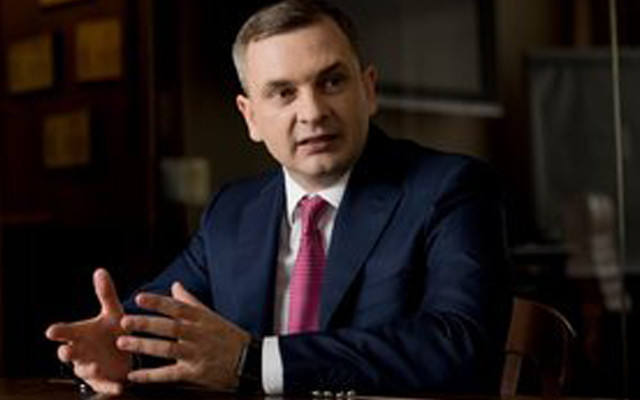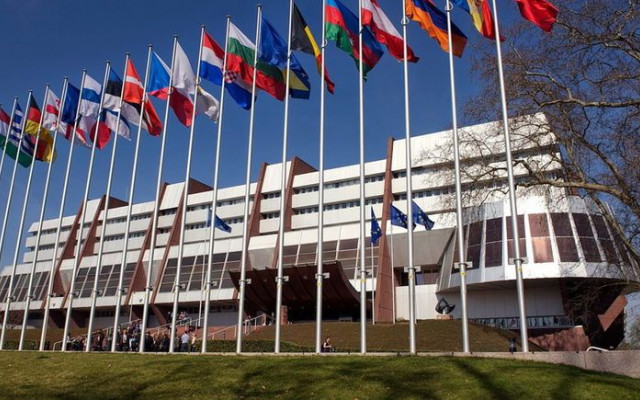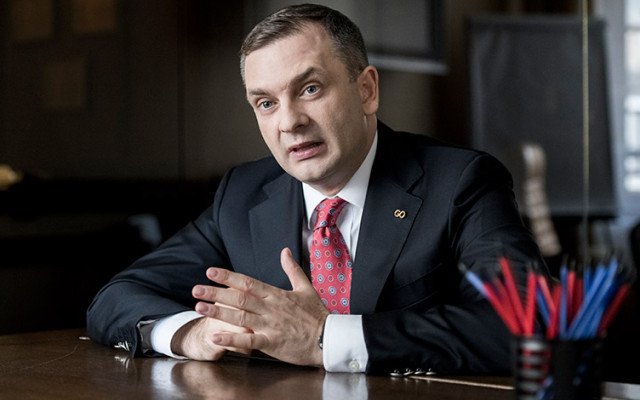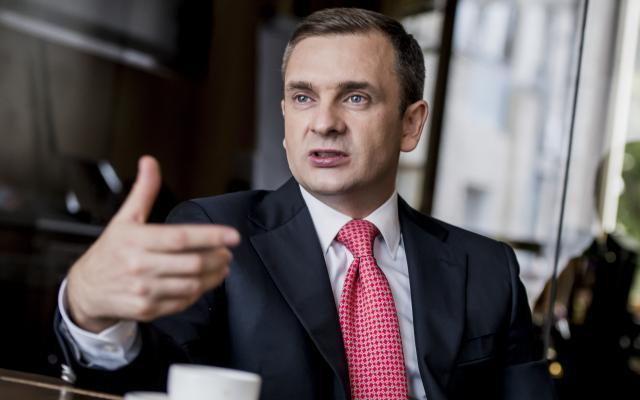
Home quote
The draft law № 9055 "On the Bar and Advocacy" has been in Verkhovna Rada for two months. Although the document is urgent, its consideration in parliamentary committees is moving very slowly.
Publications
The bar reform contrary to the Constitution: how does the draft law № 9055 leaves the citizens with no protection
The draft law № 9055 "On the Bar and Advocacy" has been in Verkhovna Rada for two months. Although the document is urgent, its consideration in parliamentary committees is moving very slowly.
It is significant that the Committee on Corruption Prevention and Counteraction was the first to present its conclusion. The committee voted for the fact that the draft law is corrupted. Judicial reform, of which the bar reform, in the opinion of the authorities, is a finalizing component, cannot increase the corruption risks in the field of justice. On the contrary, it should be aimed at transparency, strengthening the rule of law and raising the professional level of legal professions.
This conclusion of the Committee on its own, taking into account the position of the Ukrainian National Bar Association as the official representative of the Bar, should be enough to stop the further advancement of the “reform”. In fact, the decision of the parliamentary committee indicates that the draft law № 9055 is not a reform at all.
The conclusion of the Central Scientific Experts Office of the Verkhovna Rada on the draft law № 9055 also does not recommend to implement the proposed amendments. The lawyers of the VR staff advised to return the document for revision to the subject of legislative initiative.
The Bar Council of Ukraine adopted three resolutions calling on people's deputies not to support the draft law № 9055 as restricting the advocates’ rights, corrupting and destroying bar self-government.
A similar position was expressed by 17 bar councils of the regions. The bar does not block reform, but supports its alternative. There is an absolutely democratic process of discussion and the openness of the professional community to a substantive dialogue.
The joint statement of the Ukrainian Helsinki Human Rights Union and the Kharkiv Human Rights Group, led by human rights activist with an impeccable reputation Yevhen Zakharov, says that “to adopt the draft law № 9055 in such a version as it is registered with the Verkhovna Rada will be a hasty and risky step, certainly involving negative consequences." Two authoritative human rights organizations called for stopping the passage of the draft law and finalizing it in the framework of a working group with the involvement of specialists, and also to take into account the positive proposals of alternative draft laws 9055-1 and 9055-2. In their statement, human rights activists named the most critical moments of the draft law, which relate to the scope of professional rights and guarantees of advocacy and are unacceptable.
Another aspect that is still being held back in the discussion on the reform of the legal profession is constitutional. In connection with the attempt to introduce systemic changes in the regulation of the constitutional institution of the bar, it is worthwhile to display political foresight, and not political stealth. After all, the draft law establishing the rules for the work of advocates affects the interests of not only one profession, but all citizens of Ukraine. Is it possible to put personal ambitions above the whole section of the Constitution on human and civil rights and freedoms? Firstly, the Constitution guarantees everyone the right to professional legal assistance. This function is entrusted to the Bar by the Basic Law. Given the various provisions of the draft law, the effectiveness of the provision of such assistance will be significantly reduced.
Literally, an advocate in the process will be put in such a framework, where he will be only a "present person". Secondly, the draft law № 9055 impudently violates the rule of art. 22 of the Constitution of Ukraine, which clearly states that the constitutional rights and freedoms are guaranteed and cannot be abolished. In particular, the completeness of the implementation of legal instruments of the defender, according to the draft law, is limited by the liability for abuse of professional rights. The new article 22 of the Criminal Procedure Code "Abuses of procedural rights" (transitional provisions of the draft law) and several other novels of the main text of the draft law are the sword of Damocles for every advocate and are in essence the abolition of human rights. In my opinion, similar unconstitutional norms are also contained in the procedural codes. Thirdly, another constitutional human right is violated - the right to a free choice of counsel. The draft law assumes that prosecutors, investigators and judges will influence this choice. Fourth, Art. 22 of the Constitution prescribes that when adopting new laws it is not allowed to restrict existing rights and freedoms. However, the draft law № 9055 turns several constitutional articles into useless declarations at once. Whether people's deputies are ready to support such risks or still seek the opinion of the Constitutional Court, time will tell.
Everything mentioned above refers to the legal reasoning against the adoption of the draft law and is a reliable professional basis for a cool head, competent and balanced approach to the development of the bar reform in parliament and to adopt a progressive new law. However, in defense of the draft law № 9055 there was launched an arsenal of political influence, pressure on deputies and a politicized communication campaign with elements of discrediting UNBA.
What is the reason for wanting to adopt the draft law without any edits at any cost?
Does improving the status of advocates, strengthening the tools for protecting the rights of citizens, adapting the best European practices of the profession need such a shadow mode of adoption? On the night of the adoption of the state budget, there were made three attempts to assemble a Committee on Legal Policy and Justice and adopt, even in the absence of a quorum, a conclusion on the draft law. This would allow an immediate transfer of the document to a vote in the hall in the morning.
In those, in fact, extreme conditions of night lawmaking, it would not be very difficult to get the desired result. Moreover, a similar precedent already took place in 2016. In an urgent vote for changes in the Budget and Tax Codes, amendments were made to limit the amount of advocates’ fees. Although the practice of regulating legal fees at the level of the law is not found in any European country, our legislator has turned a blind eye. Despite appeals from the UNBA and the intervention letter of the Council of Bars and Law Societies of Europe (CCBE) that such a plan of intervention in the internal activities of the legal profession is unacceptable, through amendments to the codes, in December 2016, they made adjustments to the profile law "On the Bar and Advocacy."
This episode is very indicative. Firstly, it shows that if European standards interfere with someone’s personal interests, they are easily ignored in the legislative process. Secondly, the situation showed a complete misunderstanding by the legislator of the features of bar self-government. To the people way not involved with the bar and understanding of the specifics of the work of advocates, self-government is seen as a company. And it is quite logical, with this understanding, that these people are trying to bankrupt this company and seize it by raider means. Under these goals, the section of the draft law № 9055 on the bar self-government and transitional provisions that provide for the liquidation of the UNBA and all law enforcement bodies created on the basis of the current European law on the bar. The draft law offers a completely non-working model instead of the current one.
So by the way of formation, as by functional powers. The first logical question is - how are such radical changes in self-government justified? After all, this complete reformatting itself is an interference with the activities of the bar by the legislator, without agreeing on and taking into account the position of the bar itself, as prescribed by European standards. Moreover, all of these amendments, if adopted, will have to be implemented at the expense of the advocates’ fees, and the elimination of bar self-government (BSG) - with obvious financial losses for the bar.
The current model is non-working?
On the contrary, it is absolutely stable institutionally, capable of personnel renewal through democratic mechanisms of election by the advocates of their representatives to the bodies of bar self-government (about 1000 lawyers across Ukraine were elected to the BSG);
functionally and territorially balanced. For 6 years, there were held 3 congresses of advocates (130 decisions), 48 meetings of the Bar Council of Ukraine (1406 decisions), all regional and higher bodies were elected, the Unified Register of Lawyers of Ukraine works, the number of advocates reached 45,000, hundreds of trainings and workshops were held. UNBA has become a member of the leading international bar organizations - the CCBE, the International Bar Association (IBA), has established partnerships with national bars in several dozens of countries around the world.
As shown by a survey of the Center for Applied Research, advocates are satisfied with the services that UNBA provides them, trust BSG at 80%, and consider the organization as open and transparent (respondents did not notice a shortage of information on UNBA activities). Objectively, this confirms the effectiveness of UNBA.
Perhaps UNBA is built contrary to European standards? It’s not, as the law “On the Bar and Advocacy” was adopted in 2012 on the basis of the recommendations of the PACE, the conclusion of the Venice Commission of 2011 and in the framework of Ukraine’s fulfillment of the conditions for signing the Association Agreement with the EU. None of the European partners of the UNBA, for example, the Federal Bar of Germany, has never pointed out the inconsistency of our system of self-government with European standards. Thus, those who explain the need to rewrite the law in terms of self-governance by approaching the European future are openly manipulated. They were late with their mission - it has already been fulfilled by the bar community in these 6 years. What is proposed by the draft law № 9055. Create 27 regional chambers with the technical, nominal role of the National Bar Association.
Advocates, according to the authors of the draft law, should be members of both the UNBA and the regional structure. In 2011, the Venice Commission did not recommend dual membership for advocates. Obviously, this contributes to the division of the bar community by geography and will not strengthen the Bar.
Moreover, with a common legislative field and judicial practice, given the right of advocates to operate throughout the country, the artificial federalization of the bar is absolutely illogical.
Interestingly, such a reform took place in Turkey, and its result was the almost complete liquidation of bar associations, with the loss by advocates of professional immunities and guarantees. The whole process was accompanied by real repression against advocates, which has already become the focus of attention of European professional organizations.
It is curious that the authors of the draft law, speaking in favor of the democratization of self-government, in fact, invented ways to limit the advocates’ rights to participate in self-government bodies. This is another line of division of lawyers into several "varieties". Thus, an advocate who works under an employment contract has the right to participate in advocates' conferences and can be elected as a delegate to the Congress. However, he or she cannot be elected to the bar self-government bodies.
Lawyers who work in state and local authorities are subject to even greater discrimination. They generally cannot take part in the work of the bar self-government and are deprived of both active and passive suffrage.
This approach assumes that not all advocates are equal. And those who, under the new law, are elected to the self-government bodies, will be even "more equal" because the law exempts them from disciplinary responsibility. Such discriminatory things are unacceptable, their legalization cannot be called a progressive reform. The procedure for electing the bodies of the bar self-government was written out demagogically. The general meeting of advocates of the region with a secret rating voting is an unrealistic formula. To achieve effective solutions of such mass meetings without violations will be impossible. This will be followed by the court appeals, legitimacy problems, duplication of BSG in one region.
The annual congress is another “wish-list”, which will open Pandorra's box. In conjunction, these new rules will give rise to an endless battle without rules, both regional and at the level of higher authorities. It cannot be ruled out that they will not be elected at all, and the reform will stall at the stage of liquidation of the current system. Perhaps this was the true purpose of developing such a law on the bar. According to international standards, self-government is a guarantee of the independence of the bar. And that is why advocates try to protect themselves from this attack on the key principle of the profession, camouflaged as a reformist draft law.
The article is published on “Censor.NET”

Valentyn Gvozdii
Advocate, Deputy President of the Ukrainian National Bar Association, Deputy Chair of the Bar Council of Ukraine, Managing Partner of Gvozdiy and Oberkovych Law Firm
Other publications author

Publication
Abolishment of the exclusive right of advocates on representation in courts will be a backdown from the established in the Constitution of Ukrain…
Author: Valentyn Gvozdii

Publication
Deputy Head of UNBA, DCU Valentyn Gvozdii: "We expect that the new rules will change the quality of the offer on the market, where the content and t…
Author: Valentyn Gvozdii

Publication
The bar reform contrary to the Constitution: how does the draft law № 9055 leaves the citizens with no protection
Author: Valentyn Gvozdii

Publication
Technical issue
Author: Valentyn Gvozdii
Publications

Censor.net Protecting advocates – protecting justice: addressing concerns about the new law

Ihor Kolesnykov A BRIEF SUMMARY REGARDING THE APPLICATION OF THE ORDER ON EXTENDED CONFISCATION IN LATVIA REGARDING FINANCIAL ASSETS OF…

Valentyn Gvozdiy WORKING IN A WAR ZONE

Lydia Izovitova Formula of perfection

Sergiy Vylkov Our judicial system is so built that courts do not trust advocates

Iryna Vasylyk Advocacy in the proclamation of Independence of Ukraine

Oleksandr DULSKY When we cross the border of the Supreme Anti-Corruption Court, we get into another department of the National Anti-Corruption…

Vadym Krasnyk The UNBA will work, and all obstacles and restrictions are only temporary inconveniences
